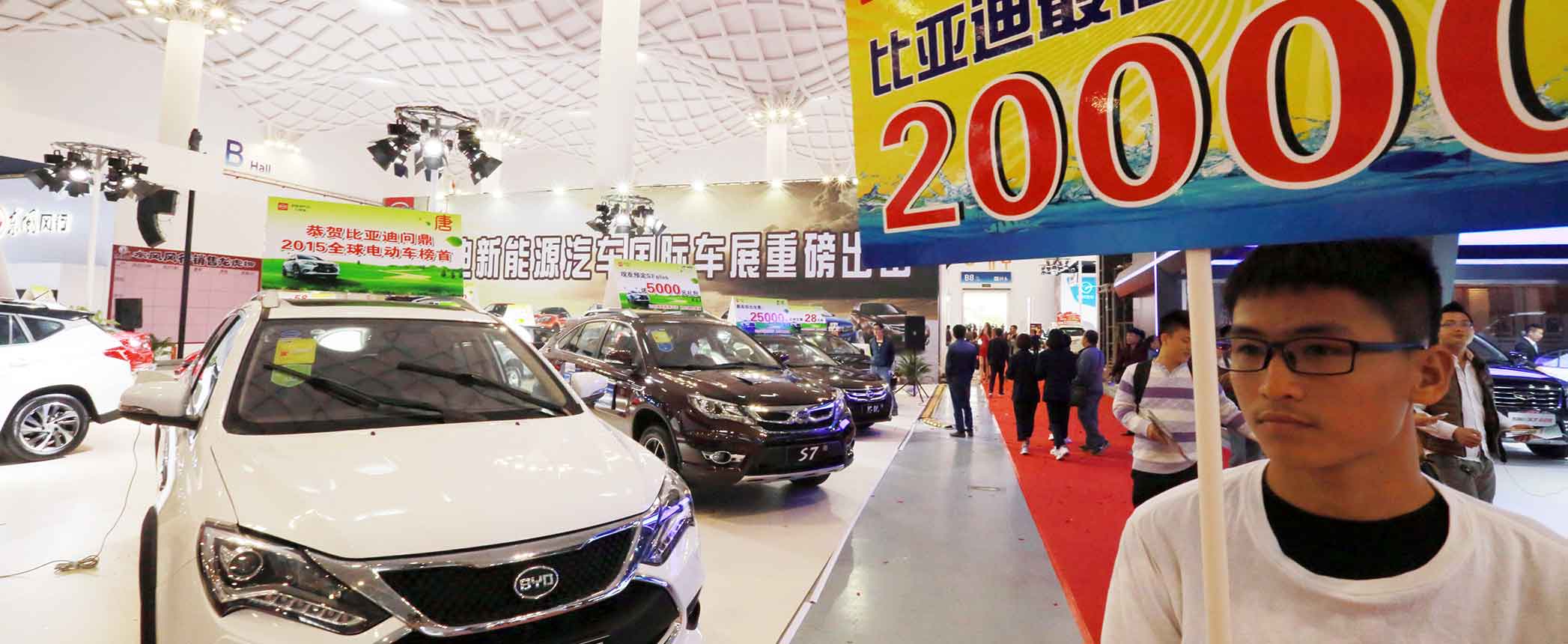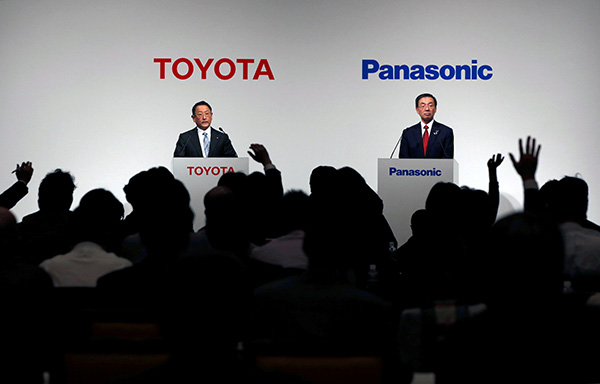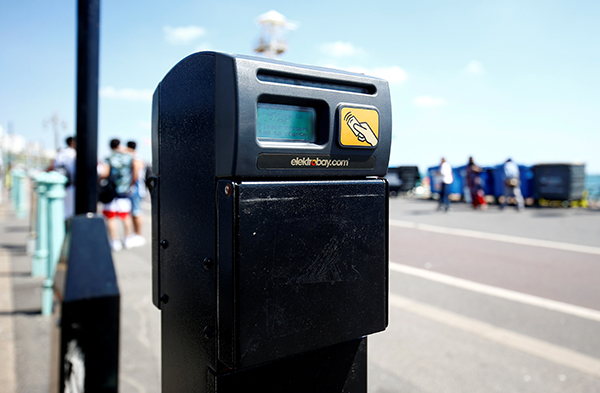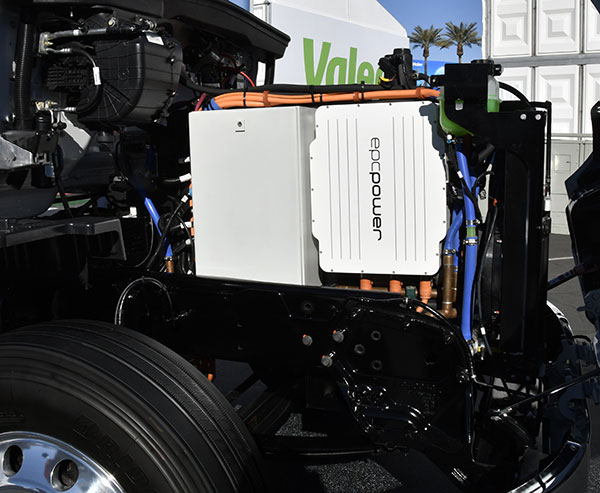
China’s government has implemented several schemes to promote EVs by encouraging sales and protecting previous investments in their manufacture. The new rules, which took effect on Jan. 10, strictly control production capacity of companies making vehicles that run solely on internal combustion engines.
At the same time, Beijing raised requirements for the formation of new manufacturers of new energy vehicles, which consist of plug-in hybrids, battery EVs and units powered by fuel cells. NEV investors will not qualify for certain government supports until they sell at least 30,000 electric cars or reach sales revenue of $437 million over a two-year period. These latter rules are designed to prevent over-capacity of EV manufacturing.
The government wants to promote EV technology in the hopes that its industry will become a world leader in the design and manufacture of those vehicles. The China Association of Automobile Manufacturers says NEV sales should hit 1.6 million in 2019, up from an estimated 1.26 million in 2018.
Although some of the new rules promote the manufacture of plug-in hybrids, one provision classifies both plug-in hybrids and milder hybrids, such as those that use electricity generated by wheel rotation, as fuel vehicles that are not eligible for investment supports, thereby giving preferential treatment to purely battery-powered vehicles.
Government supports are also offered for companies that sell electric commercial vehicles. The rules were developed and published on Dec. 10 by the National Development and Reform Commission.
China is the world’s largest automobile market and also has more sales of EVs than any other country.
Toyota, the Japanese auto giant and maker of the prominent Prius range of hybrid cars, is joining forces with equally super-sized electronics company Panasonic to develop prismatic batteries for automotive applications. Prismatic batteries are created from flat-shaped cells as opposed to the familiar cylinder-shaped cells found in small electrical appliances.

In the United States, Chevron’s tech division, Chevron Technology Ventures, invested in Natron Energy, a battery developer using Prussian Blue dye electrode chemistry. The substance stores and releases energy as sodium ions and will be mainly used for stationary energy storage systems for demand management at EV charging stations.
Tesla’s CEO Elon Musk announced at the end of December that his company’s Tesla Supercharger stations would cover 100% of Europe in 2019. At that time, there were 11,852 Tesla Supercharger points at some 1,426 charging stations globally, short of the 18,000 target by year end.
Volkswagen and Tesco will build the largest free EV charging network in the United Kingdom, they announced in late 2018. The network will comprise 2,500 charging points in the supermarket chain’s 600 parking lots across the U.K. The installation work will be carried out by Pod Point, a London-based provider of EV charging infrastructure.
South Korea’s LG Electronics and GS Caltex Corp. will partner on the revamp of GS Caltex’s retail stations, including adding 350-kilowatt fast charging points, smart robotic chargers and wireless charging stations. The first future service station is expected to open in the second half of 2019 in the capital Seoul.

BP invested in PowerShare, a Chinese company that had developed an EV charging hardware and software platform that connects drivers, charge point operators and power suppliers. BP previously acquired UK EV charging company Chargemaster, invested in fast-charging battery technology firm StoreDot and mobile-charging company Freewire Technologies and formed a partnership with 66iFuel and NIO Capital to focus on China’s EV infrastructure.
Shell will launch a chain of charging stations in South Africa at its fuel retail stations in collaboration with GridCars, a South African technology provider. GridCars is aiming to install up to 200 charging stations by the end of the first quarter of 2019. GridCars has already installed around 200 more charging stations in collaboration with Jaguar Land Rover SA and BMW.
Texan truck company Peterbilt is making an all-electric medium-duty vehicle, the Model 220EV, partway dispelling the often-repeated idea that the medium- and heavy-duty vehicle market is impervious to electrification, at least for now.
The U.S.’s second-largest conventional-engine truck maker is aiming for the medium-duty refuse, regional haulage and urban delivery sectors with the new 220EV. The vehicle has a range of 160 kilometers from two battery packs delivering a total of 148 kWh and a recharge time of one hour at a DC current fast-charging point.

The company will start deliveries in mid-2019 and has two other EV truck models in the works.
Meanwhile, Volvo Trucks delivered its first FL Electric 16-metric-ton trucks to Swedish waste and recycling company Renova and logistics company DB Schenker. The pre-production units were released in order to gather customer feedback before a small production run is made available for European markets later in 2019.
Excluding China, global sales of medium- and heavy-duty EVs will increase by 17% until 2030, according to technology market research company Navigant Research.
Auto giant General Motors scored sales of 200,000 EVs in the U.S. at the end of 2018. The downside is that it means the U.S. $7,500 federal tax credit for buyers of GM EVs will be phased out – falling to $3,750 in April and $1,875 in October – and will disappear completely in April 2020. Luxury EV maker Tesla has already hit the threshold but dropped its unit sale price by $2,000 to partially offset the reduced credit.
The credit, which dates from 2010, ranges between $2,500 and $7,500 for each new EV bought. The size of the credit depends on the size of the vehicle and its battery capacity, according to the U.S. Office of Energy Efficiency and Renewable Energy.

Sorry, a technical error occurred and we were unable to log you into your account. We have emailed the problem to our team, and they are looking into the matter. You can reach us at cs@lubesngreases.com.
Click here link to homepage